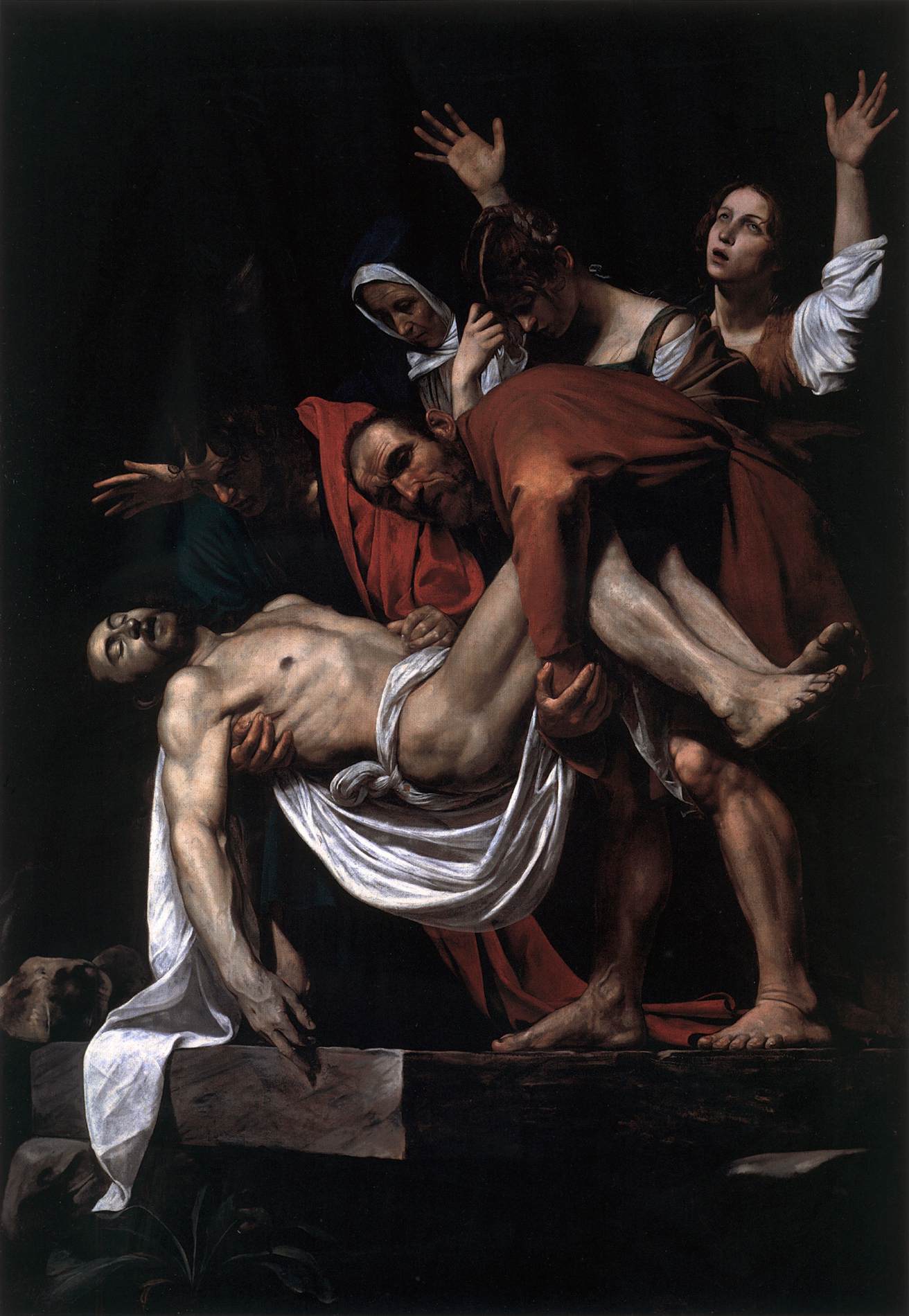Description
Caravaggio's painting "The Entombment" is a masterpiece of Italian Baroque art of the 17th century. This artwork is one of the artist's most famous and is known for its drama and realism. The painting represents the moment when Christ is taken down from the cross and is carried to his tomb by his followers.
Caravaggio's artistic style is characterized by his use of chiaroscuro, which is the technique of using strong contrasts between light and shadow to create a sense of depth and drama. In "The Entombment", Caravaggio masterfully uses this technique to create an atmosphere of sadness and sorrow.
The composition of the painting is very interesting, as Caravaggio uses a very realistic approach to depict the scene. The characters are arranged in a natural and realistic manner, and do not appear to be posing for the painting. Also, the use of space and perspective is very effective, helping to create a sense of depth and drama in the work.
The color in "The Entombment" is very subtle, as Caravaggio uses a palette of dark, earthy tones to create a feeling of sadness and melancholy. However, the artist also uses small touches of color in the clothing and details of the characters, which helps bring the painting to life.
The history of the painting is very interesting as it is known to have been commissioned by a Roman nobleman named Girolamo Vittrice in 1602. The painting was stolen in 1969 and has never been recovered, leading to speculation about its whereabouts and value. .
In short, Caravaggio's "The Entombment" is a masterpiece of Italian Baroque art that stands out for its drama, realism and masterful technique. The painting is one of the artist's most famous and is an important piece of art history.

